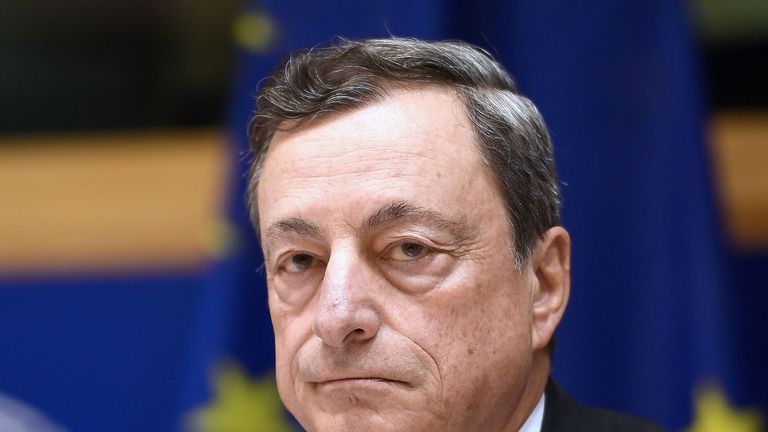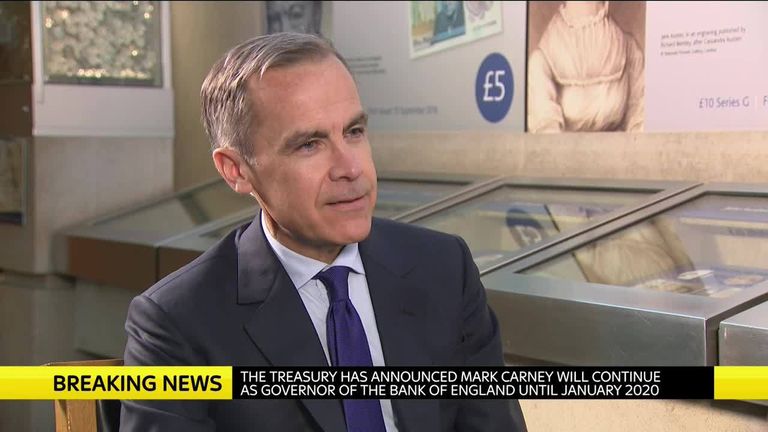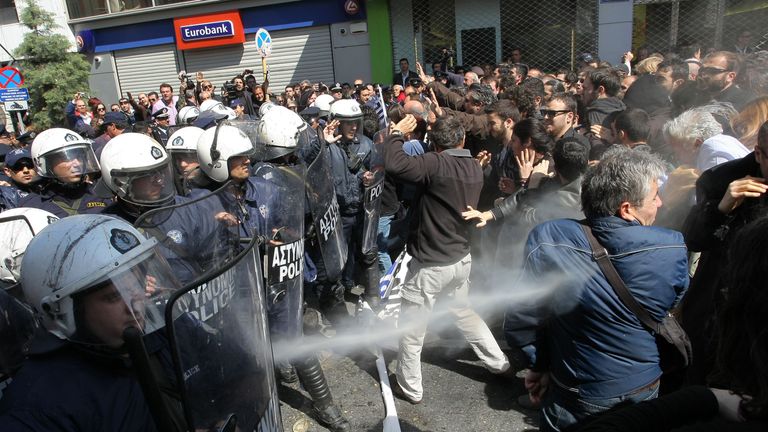Changing of Lagarde: Could Mark Carney replace her at IMF?
The nomination of Christine Lagarde to become the next president of the European Central Bank (ECB) raises an intriguing prospect for Mark Carney.
The Bank of England governor, who is due to step down in January next year, has immediately been propelled to the top of the list of potential candidates to succeed Ms Lagarde at the helm of the International Monetary Fund (IMF).
Ms Lagarde’s nomination to succeed the much-admired Mario Draghi at the ECB means she will step down two years before her second five-year term at the IMF was due to conclude.
The appointment of top figures at the IMF and its sister body the World Bank – both organisations were set up at the Bretton Woods conference in 1945 – sees almost as much horse-trading as the appointment of senior figures at the ECB and the European Commission.
Traditionally, the president of the World Bank is an American, while the managing director of the IMF is a European.
While Mr Carney was born in Canada and retains Canadian citizenship, he has for almost 30 years also had an Irish passport, to which he was entitled because his grandparents came from County Mayo. Moreover, since November last year, Mr Carney has also had British citizenship. So, twice over, Mr Carney meets the criteria.
Perhaps the bigger question is whether Mr Carney actually wants the job. Since confirming his departure, the impression has been given that Mr Carney would return to Canada, where it is thought his children would like to attend college.
There has also been a revival in the Canadian press recently of rumours that Mr Carney may go into politics there. The Toronto Star recently reported that a group of senior politicians in the governing Liberal Party are plotting to replace current Prime Minister Justin Trudeau – whose poll ratings have fallen sharply – with Mr Carney should the party fare badly in the country’s general election this October.
Mr Carney has never spoken publicly about a move into Canadian politics and so no one can say with any certainty that it is something he would like to do. But the possibility of becoming managing director of the IMF would certainly tempt Mr Carney.
He can point to stacks of appropriate experience for the role. Quite apart from his distinguished tenure at the Bank of England and the Bank of Canada, he has also served as chairman of the Financial Stability Board, the international body that promotes global financial stability.
Ms Lagarde’s immediate successor at the IMF, on an interim basis, is the American economist and banker David Lipton. Yet he is not expected to succeed Ms Lagarde on a permanent basis and there may to be a big push for Ms Lagarde’s successor to come from an emerging market economy.
This was certainly the case when, in 2011, Ms Lagarde had to see off competition from Agustin Carstens, then the governor of Mexico’s central bank, who has ironically been seen in some quarters as a successor to Mr Carney in Threadneedle Street.
There was a lot of unhappiness in the way the IMF, under Ms Lagarde, formed part of the “troika” with the European Commission and ECB to enforce austerity on Greece as part of its bailout following the eurozone sovereign debt crisis.
The feeling in some quarters, including at the IMF’s headquarters in Washington, was that Ms Lagarde was all too happy to do the bidding of the French and German governments in enforcing austerity in bringing Athens to heel – although Ms Lagarde has worked hard since then to rebuild the IMF’s reputation and image.
Another reason why the case for a non-European may be pressed harder this time is because the position of the Fund and the World Bank in the global financial system has also been challenged by the launch of the Asia Infrastructure Investment Bank, backed by China, which is keen to establish its credentials as a champion of multilateralism and global trade at a time when the US is taking a more isolationist line under Donald Trump.
That said, with the recent appointment of the American David Malpas at the World Bank, it is hard to see anyone but a European being appointed at the Fund.
America and Europe – if they can get Japan on board – certainly have enough votes on the IMF’s executive committee, which appoints the managing director, to ensure that a European will get the nod.
If Mr Carney is not appointed, another intriguing possible successor to Ms Lagarde at the IMF could be Dame Minouche Shafik, who is also seen as a potential front-runner to succeed Mr Carney at the Bank.
Egyptian-born, but also having British citizenship, she would be an attractive candidate who would meet the criteria of being both European and someone with strong emerging market credentials.
And Ms Lagarde’s appointment at the ECB also means that a cluster of candidates who had been linked with that job, including the Bundesbank president Jens Weidmann, the Bank of Finland governor Ollie Rehn and the Bank of France governor Francois Villeroy de Galhau, are also likely to have their backers. So, too, will Pierre Moscovici, the EU’s outgoing commissioner for economic and financial affairs.
Another intriguing potential candidate could be George Osborne. The former chancellor is said by those who know him to be bored at the Evening Standard, where he has been editor for just over two years, but he is on good terms with Ms Lagarde and would relish succeeding her.
Whoever gets the job will have to have what the Fund calls “a distinguished record in economic policymaking at all levels” as well as a professional background and managerial and diplomatic skills.
And they will undoubtedly find life easier than Ms Lagarde did when she took the helm in 2011. The Fund’s reputation had been damaged after her predecessor, Dominique Strauss-Kahn, had been forced to resign following allegations of sexual assault and she had to work hard to rebuild morale inside the organisation.
She also had to defend the Fund against suggestions that it was lacking in agility to respond to the needs of its members. While there have been some bumps in the road, such as the Greek bail-out crisis, she has largely answered all the questions asked of her.
Source: Read Full Article





